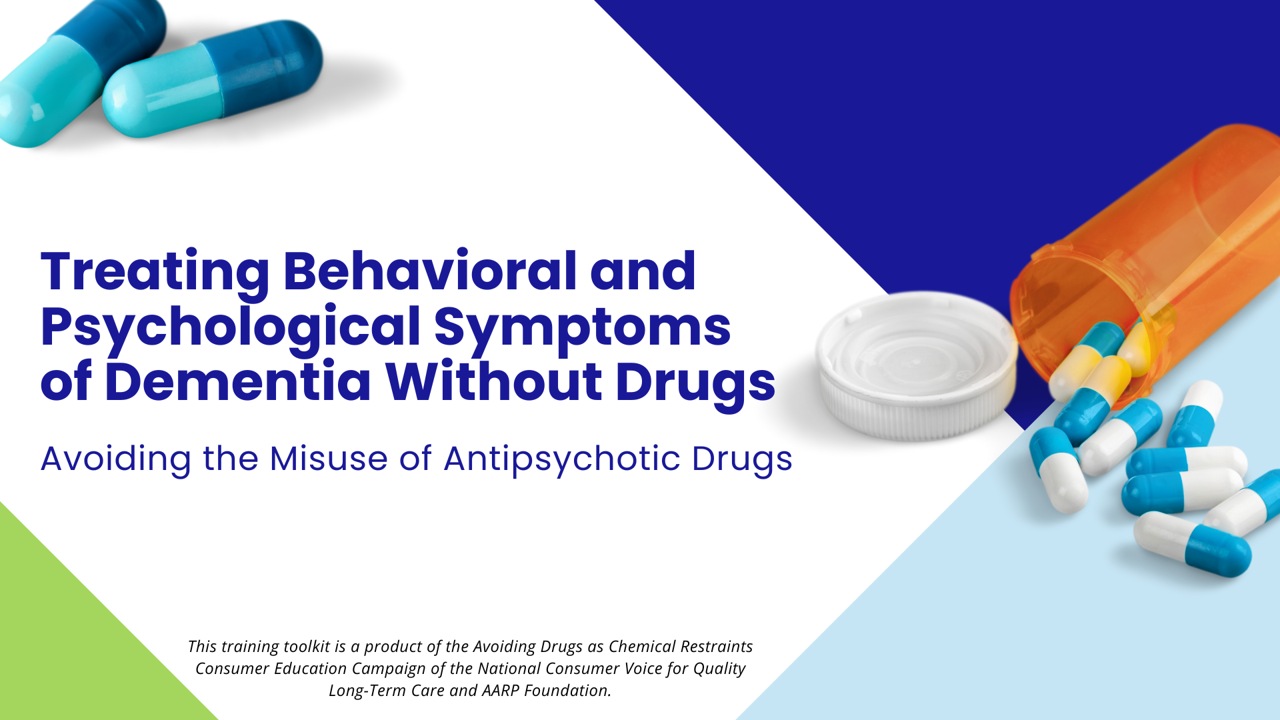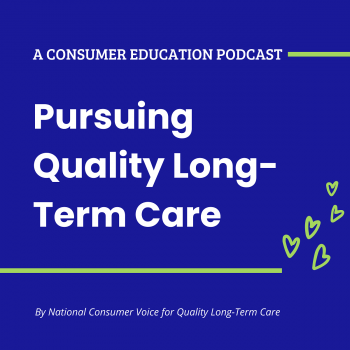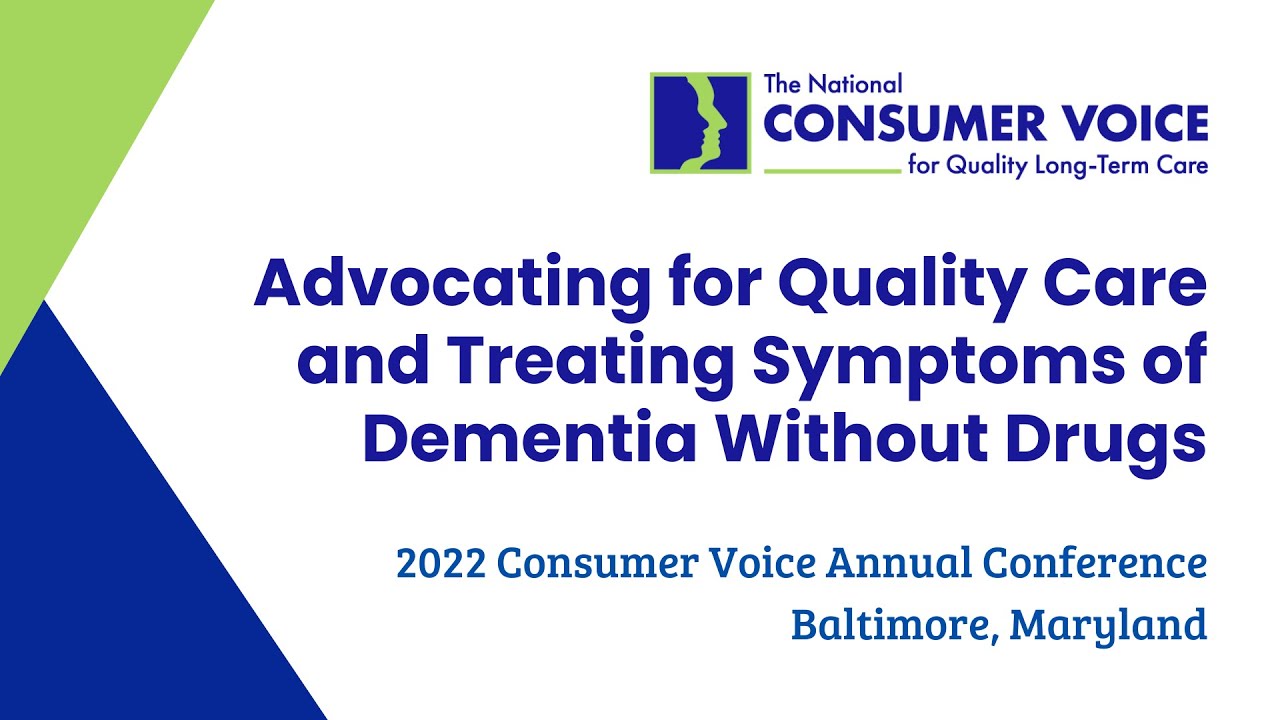See below for a Training Toolkit on Antipsychotic drugs.
Training Toolkit

Treating Behavioral and Psychological Symptoms of Dementia with Drugs In-Service Training
Advocating for Quality Care and Treating Symptoms of Dementia without Drugs
Recording from the 2022 Consumer Voice Annual Conference in Baltimore, Maryland.
Brief Video Clips
- The Impact of Psychotropic Drugs (2:42)
- Black Box Warnings (5:03)
- Why These Drugs are Prescribed (3:04)
- Non-Pharmacological Interventions (1:37)
- Informed Consent (0:41)
- Finding Real Solutions (29:13)
Resources
NOTE: Visit the Avoiding Drugs as Chemical Restraints Resources page for more consumer and family resources.
Approaches for Providing Good Care
Often, the symptoms, or behaviors, exhibited by residents are their way of telling caregivers that something is wrong, or that they need help or attention. By anticipating or addressing the cause of the distress – pain, fear, anger, tiredness, for example – the resident gets what they need, and they are less likely to exhibit the challenging behaviors. On the Emphasizing Good Care page, one will find information related to this issue, including non-drug interventions.
Podcast

Listen to the Pursuing Quality Long-Term Care podcast as we talk with national experts and advocates about strategies you can use in the pursuit of quality long-term care. Below are episodes specifically related to avoiding drugs as chemical restraints.
Visit the Avoiding Drugs as Chemical Restraints Resources page for more consumer and family resources, webinars, and training materials.



